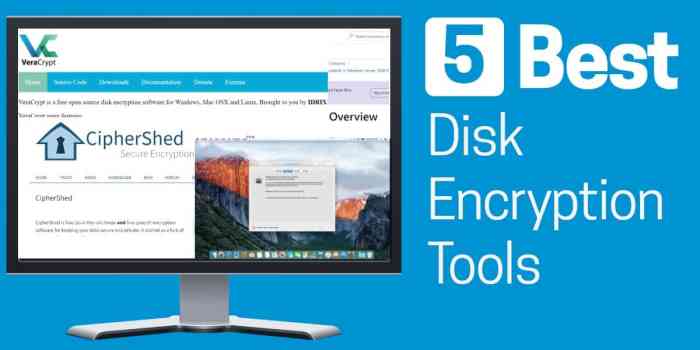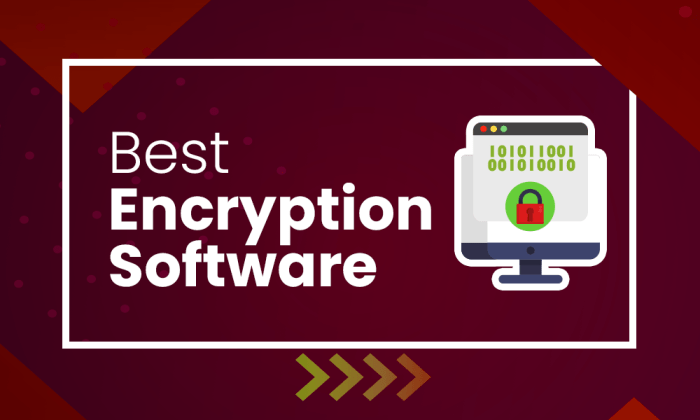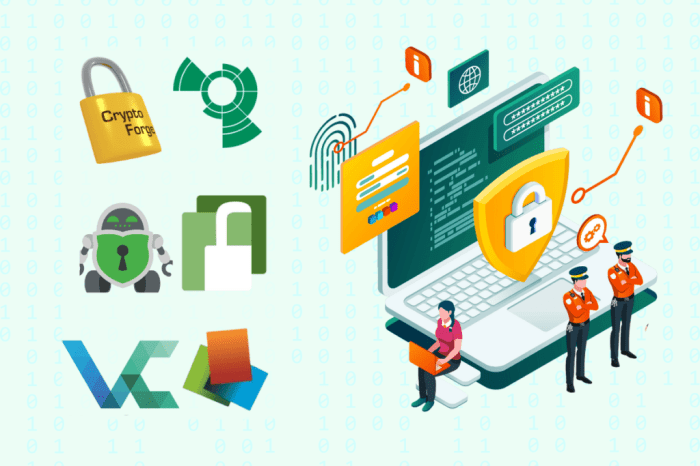In today’s digital landscape, data security is paramount. Protecting your sensitive information, whether personal photos, financial records, or confidential work documents, is crucial. Hard drive encryption offers a robust solution, safeguarding your data even if your device is lost, stolen, or compromised. This comprehensive guide explores the best hard drive encryption software available, helping you choose the right tool to secure your valuable information.
We’ll delve into various aspects, including features, ease of use, platform compatibility, and security protocols.
Understanding Hard Drive Encryption
Hard drive encryption is the process of scrambling your data, making it unreadable without the correct decryption key. This key, often a password, acts as the gatekeeper, preventing unauthorized access. Even if someone gains physical access to your hard drive, they won’t be able to decipher the encrypted data without the key. Different encryption methods employ varying levels of complexity and security, ensuring robust protection against various threats.
Types of Hard Drive Encryption
- Full Disk Encryption (FDE): This encrypts the entire hard drive, including the operating system and all data. It provides the highest level of security, protecting everything from unauthorized access.
- File-Level Encryption: This encrypts individual files or folders, allowing you to selectively protect specific data. It’s useful for encrypting sensitive documents while leaving other files accessible.
- BitLocker (Windows): A built-in encryption tool in Windows operating systems, providing robust FDE capabilities. It’s a reliable option for Windows users.
- FileVault (macOS): Apple’s equivalent of BitLocker, offering FDE for macOS devices. It’s seamlessly integrated into the operating system.
Top Hard Drive Encryption Software Options
The market offers a variety of hard drive encryption software, each with its strengths and weaknesses. Choosing the right one depends on your specific needs, technical expertise, and operating system.
1. VeraCrypt
VeraCrypt is a free, open-source disk encryption software that’s widely regarded as a secure and reliable option. It supports both FDE and file-level encryption, offering flexibility for various needs. Its open-source nature allows for community scrutiny, enhancing trust and security. It’s compatible with Windows, macOS, and Linux.
2. BitLocker (Windows)
As mentioned earlier, BitLocker is a built-in feature in Windows Pro and Enterprise editions. It provides robust FDE, integrating seamlessly with the operating system. Its ease of use and strong security make it a popular choice for Windows users. However, it’s not available in the basic Windows editions.
3. FileVault (macOS)
FileVault, the macOS equivalent of BitLocker, offers similar FDE capabilities. It’s seamlessly integrated into macOS, making it easy to use and manage. Its strong encryption and ease of use make it a great choice for Mac users.
Selecting the best hard drive encryption software is crucial for data security, especially with sensitive information. This choice often extends to considering the best options for portable storage; finding the right software for your needs is paramount. If you’re specifically looking for solutions for external drives, a great resource is this guide on best encryption software for external hard drive , which can help inform your decision about the best overall hard drive encryption software for your setup.
4. DiskCryptor
DiskCryptor is another free, open-source option offering FDE for Windows. It supports various encryption algorithms, allowing users to choose the level of security they require. Its open-source nature ensures transparency and allows for community-based security improvements.
5. AxCrypt, Best hard drive encryption software
AxCrypt is a user-friendly option offering both file and folder encryption. It’s particularly well-suited for users who need a simple and straightforward way to protect sensitive files without delving into complex settings. It integrates well with cloud storage services and offers cross-platform compatibility.
Choosing the Right Encryption Software
Selecting the best hard drive encryption software depends on several factors:
- Operating System: Ensure compatibility with your operating system (Windows, macOS, Linux).
- Encryption Type: Decide whether you need FDE or file-level encryption based on your security needs.
- Ease of Use: Consider your technical expertise and choose software with a user-friendly interface if you’re not tech-savvy.
- Security Features: Look for strong encryption algorithms and additional security features like password protection and key management.
- Cost: Determine whether you’re willing to pay for premium features or prefer a free, open-source option.
Security Considerations and Best Practices: Best Hard Drive Encryption Software
While encryption software significantly enhances data security, it’s crucial to follow best practices to maximize protection:
- Strong Passwords: Use long, complex passwords that are difficult to guess or crack. Consider using a password manager to generate and store strong passwords securely.
- Regular Updates: Keep your encryption software up-to-date to benefit from the latest security patches and bug fixes.
- Backup Your Key: Store your encryption key securely, but separately from your encrypted data. Losing your key renders your data inaccessible.
- Physical Security: Protect your device from physical theft or damage. This includes using strong passwords, keeping your device locked, and using anti-theft measures.
- Two-Factor Authentication (2FA): If your encryption software supports 2FA, enable it for an added layer of security.
Frequently Asked Questions (FAQ)
- Q: Is hard drive encryption necessary? A: The necessity of hard drive encryption depends on the sensitivity of your data. If you store highly sensitive information (financial records, medical data, etc.), encryption is strongly recommended.
- Q: How long does it take to encrypt a hard drive? A: The encryption time varies depending on the size of the hard drive, the encryption algorithm used, and the hardware capabilities of your computer. It can range from a few minutes to several hours.
- Q: What happens if I lose my encryption key? A: Losing your encryption key means you’ll lose access to your encrypted data. There’s no way to recover it without the key. Therefore, securely backing up your key is crucial.
- Q: Can I encrypt an external hard drive? A: Yes, you can encrypt external hard drives using most encryption software. This is a great way to protect data stored on portable devices.
- Q: Is encryption software compatible with all operating systems? A: Not all encryption software is compatible with all operating systems. Check the software’s specifications before purchasing or downloading.
Conclusion
Choosing the right hard drive encryption software is a crucial step in protecting your valuable data. By understanding the various options, their features, and security implications, you can make an informed decision that best suits your needs. Remember to prioritize strong passwords, regular updates, and secure key management for optimal data protection.
References
Call to Action
Protect your valuable data today! Download and install a reliable hard drive encryption software and secure your digital assets. Choose the option that best fits your needs and technical expertise. Don’t wait until it’s too late.
Commonly Asked Questions
What is the difference between full-disk encryption and file-level encryption?

Source: comparitech.com
Full-disk encryption protects the entire hard drive, while file-level encryption only protects specific files or folders.
Is encrypted data recoverable if I forget my password?

Source: cloudwards.net
Generally, no. Strong encryption algorithms make it virtually impossible to recover data without the correct password. Consider using a password manager to securely store your encryption keys.

Source: techcult.com
How does hard drive encryption impact system performance?
Encryption can slightly reduce system speed, but modern encryption algorithms and hardware acceleration minimize this impact. The performance hit is usually negligible for most users.
Can I encrypt an external hard drive?
Yes, most encryption software supports encrypting external hard drives. This is particularly useful for securing sensitive data stored on portable devices.
